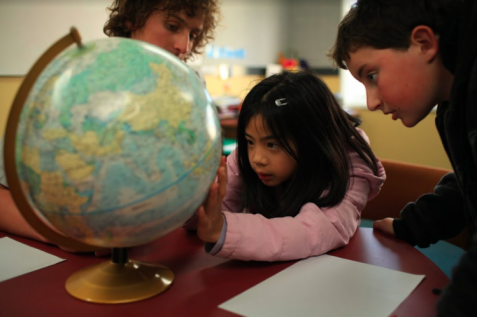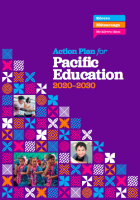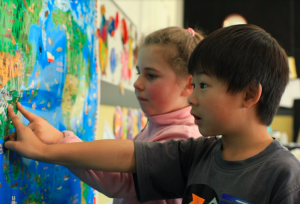Treaty of Waitangi principle
This section on NZC Online offers support on how to acknowledge our nation’s bicultural foundations and enable students to acquire knowledge of te reo Māori and tikanga Māori.
Quality Teaching for Diverse Students in Schooling (June 2003)
This report is one of a series of best evidence syntheses commissioned by the Ministry of Education. It explains ten characteristics of quality teaching to support teachers to manage the learning needs of diverse students.
Home: Stories from New New Zealanders
This text tells the stories of four Avondale Intermediate students who moved to New Zealand from overseas. Interviewed by their teacher, Kate Paris, the students share memories of what life was like in the countries where they were born (South Africa, Sāmoa, Pakistan, and Kenya), and they discuss what it’s been like adjusting to life in New Zealand.
Tongan language, culture, and identity
Ma’ata Fusitu’a is a teacher of the Tongan language at Sir Edmund Hillary Collegiate in South Auckland. In this blog Ma’ata explains some important aspects of Tongan family life and culture and offers some suggestions on how we can support Tongan language and culture in our schools and classrooms.
Being Tokelau in Aotearoa
Aloihio Kave Kelemete is an educator of Tokelau descent. In this blog, Hio explains some important aspects of Tokelau identity and offers suggestions on how we can promote Tokelau language and culture in our schools and classrooms.
Our Niuean cultural experience
Karl Vasau, principal of Rowandale School in South Auckland, recently took some of his teachers to Niue to learn more about the language and culture. In this blog, Karl reflects on this cultural exchange and shares some activities that his school uses to promote the language and culture of Niue.
Core Education blog: Going back to the island (May 2018)
Teanau Tuiono reflects on his own cultural heritage and urges educators to dive deeper into the cultures that our students bring into the classroom.
Islamic practices observed by Muslim students: Guidelines for New Zealand schools (PDF)
This resource is designed to help New Zealand schools with Muslim students, in their understanding of some of the Islamic practices their students may observe during school time.
 Islamic practices observed by Muslim students at school (PDF, 543 KB)
Islamic practices observed by Muslim students at school (PDF, 543 KB)
Guide to basic Muslim etiquette (PDF)
This guide shares information about Muslim values, customs, and festivals. It serves as a guide only so do check with your Muslim families if you are not sure as there may still be some cultural differences.
 Guide to basic Muslim etiquette (PDF, 65 KB)
Guide to basic Muslim etiquette (PDF, 65 KB)
Best Evidence Synthesis cases
The following cases from Best Evidence Synthesis iterations are user-friendly resources to support focussed professional learning related to the cultural diversity principle.
BES Case 18 – Integrate indigenous knowledge into the curriculum (online PDF)
This case, situated in Canada, explains how important a culturally responsive teaching approach was to the success of indigenous learners from low socio-economic status communities.
BES Case 11 – Create educationally powerful connections with learners’ cultures (online PDF)
This case illustrates how teachers can use practical strategies to encourage their students to draw on family and community knowledge and, in this way, accelerate their achievement.








